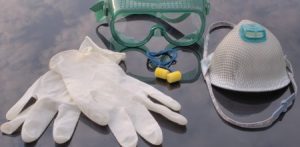- Homepage
- Departments
- Occupational Safety & Risk Management
- Industrial Hygiene & Occupational Safety
Industrial Hygiene & Occupational Safety
- Pest Management
- Fire Plan Review and Inspection
- Building Codes Enforcement
- ADA Assessment
- Applicable Building Codes
- Building Emergency Coordinators
- Certificate of Completion or Occupancy
- Chartfield Form Codes Permits
- Inspections
- Permit Application Process
- PERMIT APPLICATIONS AND FORMS
- Permit Fee Schedule
- Permit Instructions
- Plan Submittal Guidelines
- Temporary Structures on Campus – Including Tents
- Insurance and Risk Management
- Occupational Medicine
- Industrial Hygiene & Occupational Safety
- Ergonomics
- Camps
- Drones/UAS
- Building and Contents
- Boating & Dive Safety
- Automobile
- Report Lab Closeout
- Radiation Safety
- Hazardous Waste Management
- Chemical and Lab Safety
- Standard Operating Procedures
- Safety Surveys
- Peroxide Forming Compounds
- New Labs, Moving Labs & Closeouts
- Nanoparticles
- Minors and Visitors in the Lab
- Lessons Learned
- Lab Ventilation
- Lab Signage
- Lab Safety Manual
- Hydrofluoric Acid
- Greenhouse Safety
- First Aid Kit Info
- Equipment Purchase Approval
- Equipment Decontamination
- DEA – Controlled Substances
- DBPR – Pharmaceutical Products
- Cryogens
- Compressed Gas
- Chemical Storage and Management
- Chemical Spills
- Chemical Safety Information
- Chemical Inventory
- Chemical Hygiene Plan
- Chemical Exposures
- Acids That Deserve Special Attention
- Biological Safety
- Vaccination Policy for Research Personnel
- Shipping and Transport of Biological Materials
- Select Agents
- Research Involving Flying Insects
- Recombinant & Synthetic Nucleic Acids
- Plant Research
- NIH Guidelines Flowchart
- BloodBorne Pathogen Program
- Biohazardous Waste Disposal
- Biohazard Project Registration
- Autoclaves
- Acute Biological Toxins
- Lab Safety & Research Services
- Clinic Safety
- Chemical Safety
- Animal Research Safety
 Industrial hygiene is the science and art devoted to the anticipation, recognition, prevention and control of those environmental factors or stresses present in the workplace that have the potential to adversely affect the health and well-being of workers and other members of the University community.
Industrial hygiene is the science and art devoted to the anticipation, recognition, prevention and control of those environmental factors or stresses present in the workplace that have the potential to adversely affect the health and well-being of workers and other members of the University community.
The Environmental Health and Safety Division has a team of experienced industrial hygienists who manage a wide range of programs designed to protect the health and safety of faculty, staff, students and visitors on both the main campus and at other University of Florida centers across the state. Program staff routinely conducts hazard assessments and provides recommendations to control hazards in the work environment. Staff also ensures compliance with University health and safety policies and with applicable regulatory requirements.
Training sessions covering various industrial hygiene program topics are provided on a rotating schedule or can be arranged, depending on the subject matter. EH&S industrial hygienists are available to provide consultation and to address the University community’s health and safety concerns. Please feel free to access the specific program information and to contact us directly if there are any specific health and safety questions or concerns.
If you would like to learn more about industrial hygiene and what industrial hygienists do, please watch this short video presentation.
Please visit the Industrial Hygiene Policy page for specific administrative guidelines and regulations.


